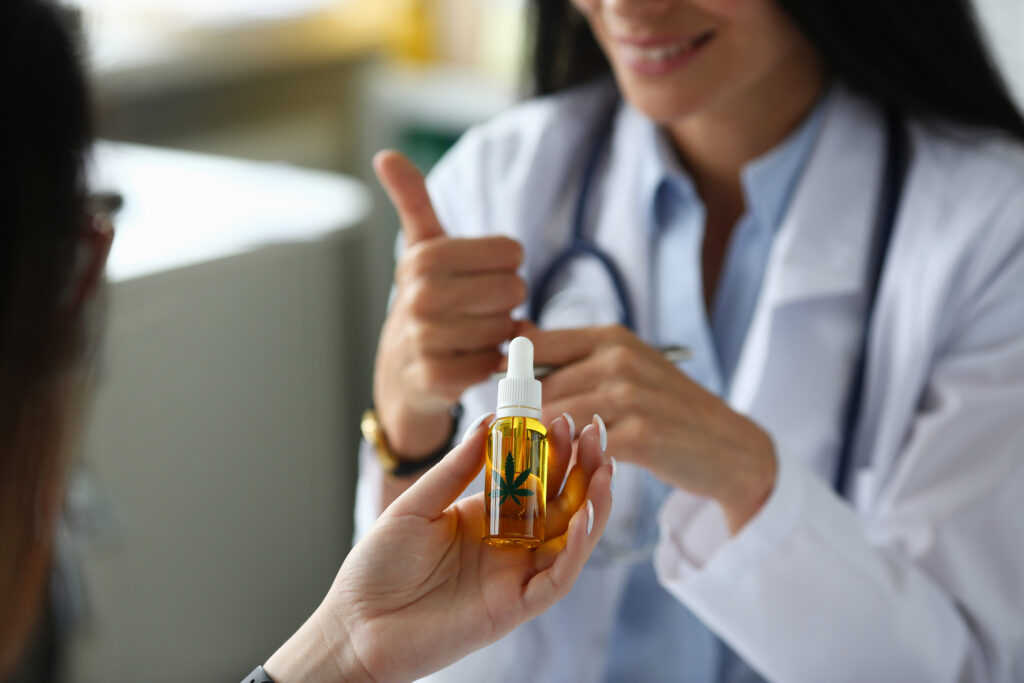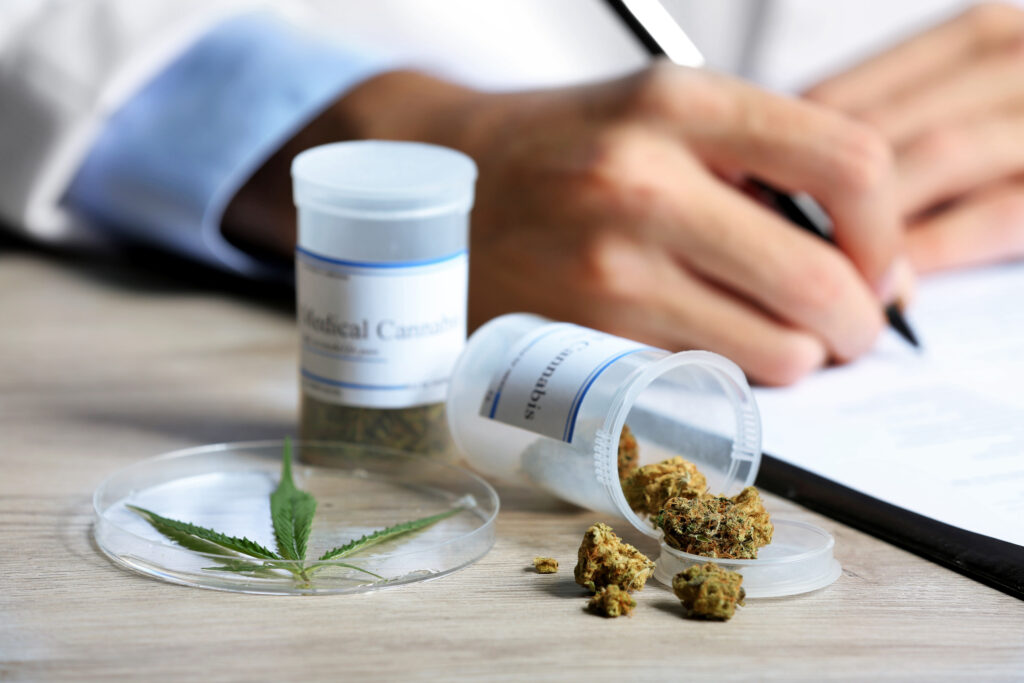Over 37 million Americans lack health insurance, and an additional 41 million have inadequate access to proper care. In some states, patients spent nearly $19.7 billion on retail prescription drugs in 2021 (we’re looking at you, Texas).

It’s no secret that issues surrounding healthcare accessibility have plagued the United States for quite some time. And although cannabis is now legal in more than half of the country, the barriers to medical cannabis access are intrinsically tied to healthcare accessibility.
Nineteen states have medical-only programs, which means you can’t freely walk into a dispensary and make a purchase unless you have your medical marijuana card.
The conditions that qualify for medical marijuana vary greatly depending on where you live. In Washington, D.C., patients over 21 years old are permitted to self-certify for a medical card.
By contrast, other states limit the guidelines so only patients with specific conditions are eligible to apply.
Rules and guidelines aside, let’s say you do qualify for your medical cannabis card. You then have to pay for the initial registration fee to the state and an annual renewal fee. Then, you have to schedule an appointment with a state-certified cannabis physician, who may charge as much as $200 for your first appointment and $75-$100 for your annual renewal appointment.
After all, medical marijuana is not covered by insurance — so your cannabis doctor’s appointment isn’t, either.
Fortunately, however, some states (such as Pennsylvania) do waive or discount the application fee if you currently receive benefits from federal assistance programs, such as SNAP and/or Medicaid. You’ll still have to pay for the appointment with your cannabis physician, though.
For many, this is a major deterrent that keeps them from applying for medical marijuana cards. But in the long run, it’s better to have the legal protection of having your medical card, especially if you live in a state where adult-use cannabis is not an option.
Others fear they may not be approved, even if they have a condition that medical cannabis may help them alleviate the symptoms of. On the other hand, some fear they would face workplace discrimination for having a medical card, even if they don’t get drug-tested at their job regularly.
Despite the significant strides cannabis reform has undergone in recent years, many barriers still prevent patients from accessing medical cannabis. And these barriers, whether it’s realized or not, overlap with the overarching systemic issues that impede healthcare accessibility overall.
In both cases, already-vulnerable populations are unnecessarily financially punished, whether it be a result of lacking insurance or not being in a place where you can afford to pay for annual renewal and out-of-coverage doctors’ fees.
Just as the current administration is taking steps to control prescription drug costs through the Inflation Reduction Act, more needs to be done to help decrease barriers to medical cannabis access, as well.
Local representatives and community organizations should come together and host discounted cannabis registration events, where they help qualifying patients in their district take the first step to get their medical cards. Sometimes registering (especially if you’re not particularly tech-savvy) is the most difficult part.
Likewise, more constituents should take advantage of the services offered at their local representatives’ offices. Most people don’t realize that if you’re having trouble registering for your medical card online, you can visit your state representative’s office for assistance with applying.
They will be able to contact the Department of Health/Cannabis Regulatory Department on your behalf and resolve any errors you might have encountered during your registration process.
In a related vein, more companies need to step forward and acknowledge that drug testing for cannabis is a bit archaic. Unless you are driving or operating heavy machinery/power tools, it’s probably irrelevant whether you use cannabis or not. And even then, who cares how you spend your free time so long as you’re not high on the job?
Key Takeaways: Cannabis Accessibility is Part of Healthcare Accessibility

Healthcare accessibility — or lack thereof — has been a major issue in the United States for quite some time now. While these conversations are centered around hard-hitting topics, such as health insurance, lack of care in rural areas, and rising prescription drug costs, there’s another topic that hardly ever enters the conversation: medical cannabis access.
Healthcare accessibility and access to medical cannabis are treated as two distinct issues. But are they really? At the end of the day, both boil down to the same core message: countless people are not receiving the care they need.
Access to medical cannabis has greatly improved over the last decade. Nevertheless, there are still barriers that need to be broken to ensure fair and equitable access for all.
References
- Galvani, A. P., Parpia, A. S., Foster, E. M., Singer, B. H., & Fitzpatrick, M. C. (2020). Improving the prognosis of health care in the USA. The Lancet, 395(10223), 524–533. https://doi.org/10.1016/s0140-6736(19)33019-3
- NiceRX. (2021). The US Prescription Drug Report 2021 – NiceRx. https://www.nicerx.com/prescription-drug-report-2021/
- Medical Cannabis Patient 21+ Self-Certification Guidance. (n.d.). District of Columbia. https://content.govdelivery.com/accounts/DCWASH/bulletins/31f47fe
- The White House (2022, October 14). Executive Order on Lowering Prescription Drug Costs for Americans. The White House. https://www.whitehouse.gov/briefing-room/presidential-actions/2022/10/14/executive-order-on-lowering-prescription-drug-costs-for-americans/